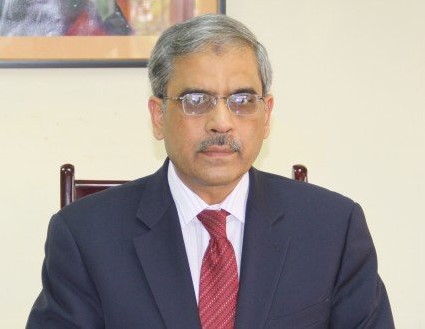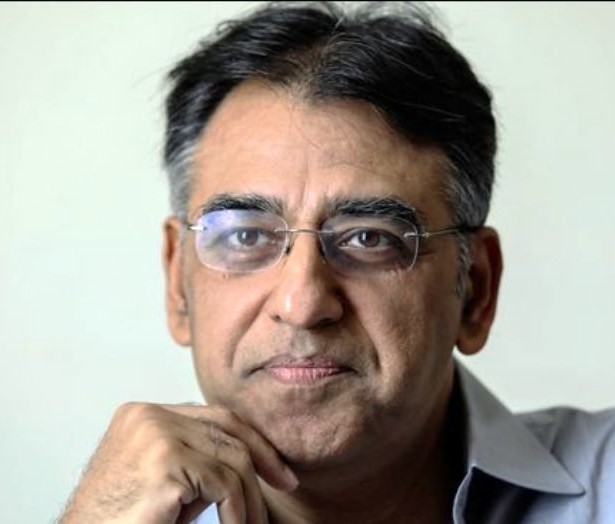The corrupt send their ill-gotten gains abroad for purchase of assets and property outside Pakistan, no wonder the “hundi mafia” has great influence with the establishment. Estimated at around $14-15 billion in 2004, the “hundi system” facilitators earned about $1.2 billion, the country losing $15 billion annually, or $45-50 million every working day. Multiply all this three times roughly for 2018.
Imposing emergency rule in India in 1975 as a civilian dictator, Indira Gandhi jailed all hundi traders, seized all their properties and bank accounts and even the funds en route. In 2004 the Indian expatriate on an average sent $4,000 per head annually, all through the banking system. Given the 8-9 million non-resident Indians abroad in 2004, this came to a cool $30-35 billion annually. Today it is more than US$ 70 billion.
Chairman Bank Alfalah HE Sheikh Nahyan Bin Mubarak Al Nahyan sponsored a study (when I was a director in 2004) to ascertain why Pakistan was lagging behind in home remittances. Headed by Pervaiz Shahid, a senior executive of Bank Alfalah, the study group carried out research on the ground in Pakistan, Sri Lanka, Bangladesh and the Philippines.
The Philippines government gave wholehearted support to the Bank Alfalah study Group. 3.2 million Filipinos were registered as employed abroad in 2003, 82% were women. The Philippine Central Bank invested money in a particular software meant to disburse money instantly to the many branches of many banks on one platform. This software was given free to the banks. In the Philippines the banks remained open 24 hours seven days a week. Money remitted anywhere in the world was instantly transmitted to the account of the recipient next day. This built-up trust among the Filipinos abroad, they did not go outside the banking system. $8.6 billion were remitted through banking channels home in 2003, approximately $2,700 per expatriate Filipino per year. Without being as efficient as the Filipinos, the 900,000 Sri Lankan workers employed abroad still managed to remit $1.25 billion annually, each Sri Lankan in 2003 sending approximately $1,400. The banking system was used more than “hundi”, a negligible amount of money transacted outside banking channels.
In 2003 2.3 million Bangladeshis sent $800 million annually, about $350 per head. While Bangladesh has a very active “hundi” trade, Pakistan was and remains the worst easily. In 2003, with 3.5 million Pakistanis sent only $900 million per annum, or approximately $260 per head, one-tenth of what is being sent by expatriate Filipinos and one fifth of what is remitted by the Sri Lankans. Non-resident Indians (NRls) sent as much as $4,000 per head home in 2003. Bangladesh has shown considerable improvement since 2003, with 2.5 million sending around $9 billion in 2007 ($3600 per head). This is double the amount the 3.7 million Pakistanis sent individually, $6.1 billion ($1650 per head) in 2007.

In Pakistan the problem of “Hundi” has been exacerbated by not only by some unscrupulous foreign exchange dealers having undue influence over the regulations but now even TELCOS have got into the act facilitating this illegal business exploiting the grey space between the State Bank of Pakistan (SBP) regulations and that of the Pakistan Telecommunication Authority (PTA). Instead of being limited to one SIM and Rs. 25000 max as per SBP rules, five SIMs are used by every individual to send Rs. 125000 daily. The “manual hundi” has been replaced by a far more efficient “electronic hundi”, can TEL COS confirm not been indicted for facilitating money-laundering in any country? The World Bank wants “financial inclusion” through the Asaan (Easy) Mobile Account (AMA), to get the 85% population “financially excluded” into the banking system. For more than 100 million “unbanked” Pakistanis this is economic life and death, for the TELCOS AMA it is a Pandora’s Box; they oppose regulatory processes/ mechanism and outside monitoring. Having no qualms or patriotism in avoiding taxation, our modern “East India” Companies will fight forensic oversight of their transactions through their local heavily paid “babus”.
This exchange value having dropped alarmingly in the last couple of months, to prevent a free fall of rupee there is no time left. 3.7 million Pakistanis sending about US$ 8000 each annually (about US$ 675 per month) would amount to about $32 billion annually. Putting foreign exchange dealers out of business permanently as India did will stop outflow of at least $15-20 billion.
Fully fifteen years later Home Remittances Accounts (HRA) operationally digitalized by all the commercial bails is being attempted full speed by the Imran Khan govt in its first 100 days of governance. Meaning “business,” Imran Khan must mandate Asad Omar and Tariq Bajwa to (1) increase incentives for Oversea Pakistanis to opt for regular money transmitting channels and (2) regulate the TELCOS trans actions under the existing rules not to run afoul of FATF.




